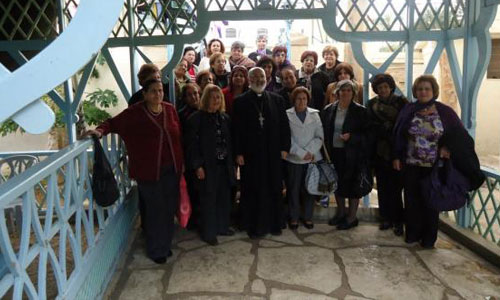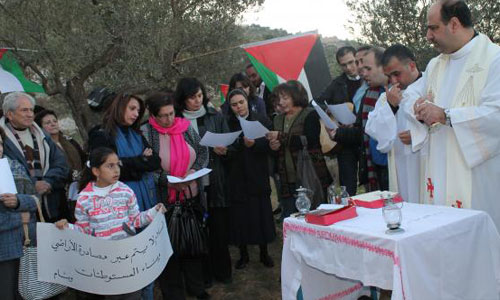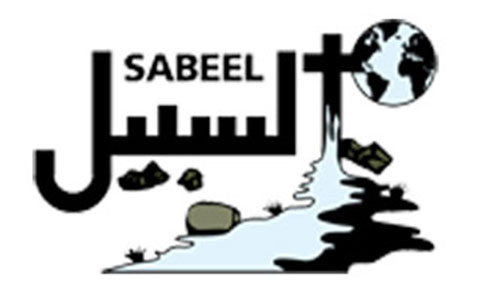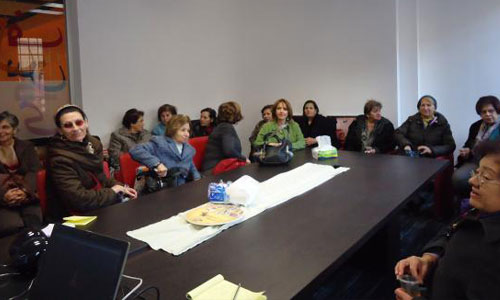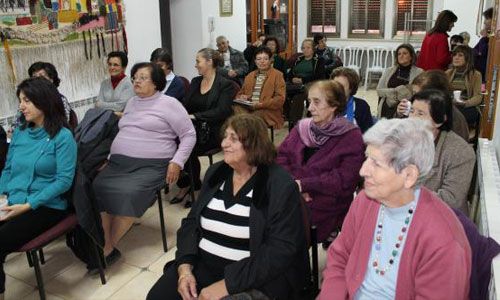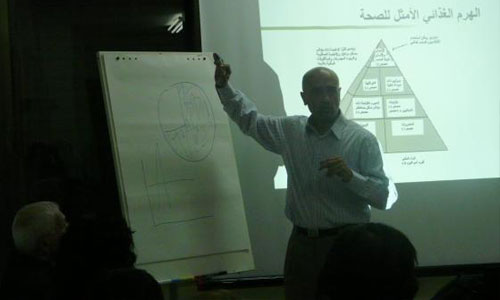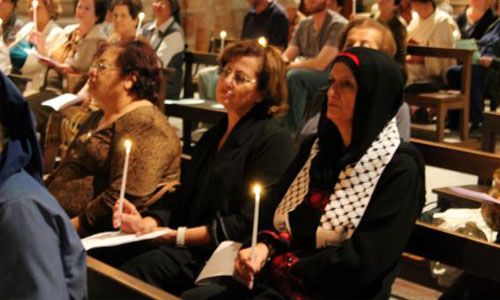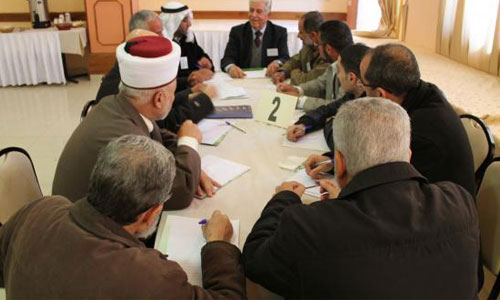
Living Together Program
Sabeel Ecumenical Liberation Theology Center
and
Al-Liqa’ Center for Religious and Heritage Studies in the Holy Land
“Shared Living in the Coming State of Palestine”
1 December 2011
One hundred and forty Christian clergy and Muslim sheikhs from Ramallah, Jerusalem, Nablus area, Hebron, Bethlehem area, Aboud village and Galilee came together for a one day conference in Beit Sahour, West Bank (or Occupied Palestinian Territories).
Reverend Naim Ateek from Sabeel and Dr. Jeries Khoury from Al-Liqa’ center welcomed the participants and thanked them for coming to the important event.
His Beatitude Patriarch Michael Sabbah and His Honor the Mufti of the Holy Land, Sheikh Muhammad Hussein, spoke together on a panel entitled “The Stand of Religious Leaders with regard to the Palestinian bid for statehood at the United Nations”. Sabeel board member and former Palestinian Ambassador to France, Ms. Hind Khoury, moderated the panel.
In this session both speakers addressed the importance of having a Palestinian state, and affirmed the Palestinian Authority’s decision to apply for statehood. They also highlighted the importance of working together as one body in our state, despite religious differences.
The second session was a panel about “The Future of Shared Living in Light of the Establishment of an Independent Palestinian State”. The participants focused on different aspects. The comments of Father Dr. Rafiq Khoury and His Honor Sheikh Abd Al-Majeed ‘Ata centered on religious aspects and discourse. Mr. Musa Darwish focused on the educational curriculum (his comments were shared by proxy of Jeries Khoury), and Attorney Mary Rock commented on the legal aspects. Sabeel board member Ms. Jean Zaru moderated this panel. Significantly, all speakers were honest and open. They debated with immense respect and acceptance of each other.
After a short break participants divided into Group Sessions in which they discussed what they heard throughout the day.
After Sharing a meal together the program concluded with the final Panel: “Practical Suggestions for the Upcoming Period.” The participants for this were the Rev. Dr. Naim Ateek, Mr. Zuheir al-Dab’i, and Dr. Jeries S. Khoury; moderated by Rev. Ibrahim Nairouz.
In this session the speakers again were very open and each one of them expressed how he saw the relationship should ideally be between Palestinians as they face this important historical period. Each emphasized the importance of carefully and constructively sharing these sensitive topics with our people, taking the chance to address them during ceremonies, preaching times, and other opportunities.



